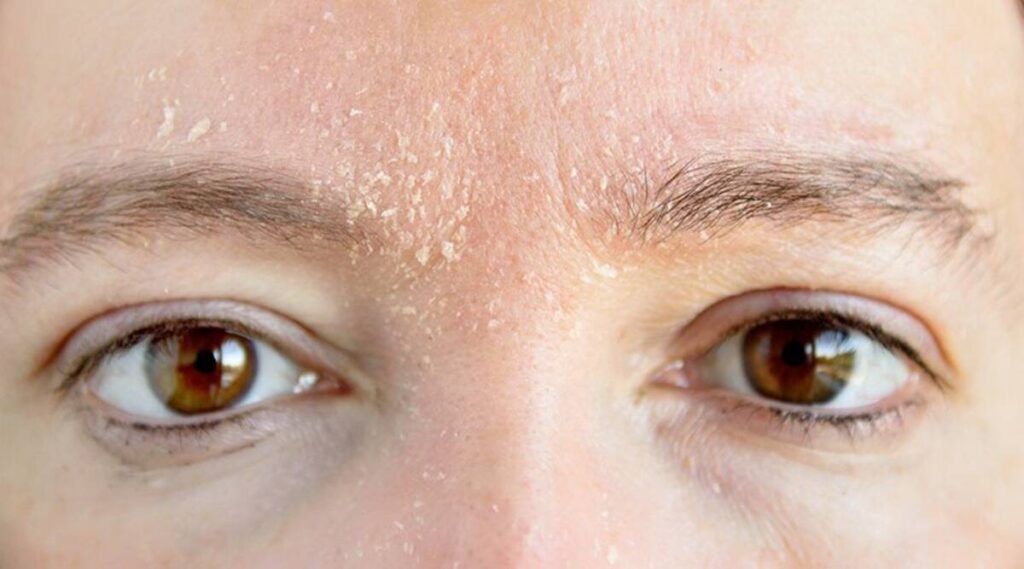
It’s common knowledge that chronic stress is extremely damaging to a person’s mental health, but did you know that all of that stress is slowly destroying your skin too? High stress levels are linked to a number of different skin conditions. If you’ve been noticing that your skin problems coincide with increased stress levels, then it’s time to do something about that.
Oily Skin and Acne

If you already have oily, acne-prone skin, then it’s important to understand that things will only get worse whenever you’re stressed. Stress triggers the body into releasing certain hormones. One of these is called cortisol, otherwise known as the stress hormone.
Now, cortisol isn’t all bad. This is the hormone that gives your body its natural fight or flight response, something that was crucial to human survival back in the day when stressors were linked to life or death situations.
However, cortisol also interferes with the skin’s sebum production. Not only does it cause the skin to start producing more oil, but the oil that it produces will be thicker and greasier. As you can imagine, it doesn’t take long for pores to become clogged, resulting in more breakouts.
Wrinkles and Sagging Skin

Collagen and elastin are two proteins that are key when it comes to skin firmness and tightness. Think of them as scaffolding – they hold your skin up from beneath, giving it its structure and volume.
The body naturally produces these proteins in plentiful amounts during its youth. Unfortunately, production declines with age, which is why the skin takes on a looser and more wrinkled appearance as it grows older.
There are already several factors out there that contribute to collagen and elastin degradation. From UV rays and pollution to a poor diet and a lack of exercise, it’s already difficult enough to keep skin looking youthful when it has all of this and more to deal with.
However, throw stress into the mix and you’re fighting a losing battle. The cortisol produced by your body during times of stress severely degrades the proteins in your skin. This means that you’ll start to experience fine lines and wrinkles much earlier in your life than you otherwise would have.
Dryness and Dullness

You’ve probably heard of hyaluronic acid. This humectant is a popular skincare ingredient thanks to how it maintains skin cell moisture levels to keep the skin hydrated. This is another important compound that the skin naturally produces, but stress interferes with and suppresses this process. As a result, skin cells struggle to keep themselves hydrated, meaning that it doesn’t take long for the complexion to look dull, dry, and sallow.
The spike in adrenaline that accompanies feelings of stress doesn’t help either. This causes you to sweat more, leaving your body, and therefore your skin, more dehydrated than ever.
Skin Sensitivities and Flare-Ups

If your skin is already sensitive, then stress is something that you definitely want to avoid. The high levels of inflammation that stress triggers will make your skin more sensitive than ever, causing it to react to things that never used to cause an issue before.
This will be even more noticeable if you suffer from an inflammatory skin condition. Acne aside, everything from rosacea to psoriasis to eczema all become so much worse when there is extra inflammation in the body. Not only will you start to experience flare-ups at a greater frequency, but each flare-up will also be more severe, and will likely last for longer too. This is exacerbated by the fact that people tend to touch and pick at their face during times of stress, meaning that your skin will take much longer to heal after each flare-up.
Saving Your Skin From Stress

If stress is a regular occurrence in your life, then you need to take the necessary steps to protect your skin from its damaging effects.
A good skincare routine is the best way to begin. This starts with a cleanser and toner, which are both particularly important if you’ve noticed an increase in acne breakouts. You should then add in a couple of antioxidant-rich serums to help reverse and block skin protein damage.
Finally, finish up with a good moisturizer to counter the drying effect that stress has. If your skin is particularly dry, you may find a facial oil useful too. This may seem like a daunting shopping list, but you’ll find all of these products, along with reviews and skincare advice, on Pierre Michel Beauty.
Stress Management Techniques

There are numerous stress management techniques out there. However, each person responds to stress in their own way, meaning that what works well for one person may not affect the next.
Rather than simply giving in to the stress, make a conscious effort to try as many of the following science-proven stress management techniques as possible, even if they really don’t appeal to you. You’ll soon discover a few that are able to bring your stress levels down and induce a calmer and more positive frame of mind.
- Physical activity, whether this may be going for a jog, a bike ride, or simply dancing around the house
- Meditation and deep breathing exercises
- Share your problems with a friend or family member
- Spend some time in nature
- Write down what’s bothering you
- Spend time with a pet, either yours or someone else’s
- Aromatherapy combined with calming herbal teas (chamomile, lavender, and valerian are particularly effective)
- Listen to soothing music
- Get a massage
In addition to finding ways to de-stress during particularly stressful moments, eating a healthy diet and making sure that you’re getting enough sleep are both also vital in keeping you mentally balanced.
De-Stress for Better Skin

While occasional stress isn’t going to affect your skin much, long-term, chronic stress is where the issue lies. In addition to putting together a skincare routine that tackles all of the problems that stress brings to your skin, it’s also important to take a more holistic approach and work on keeping your overall stress levels as low as possible.








